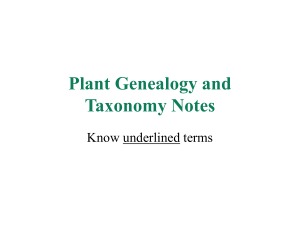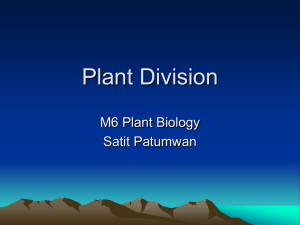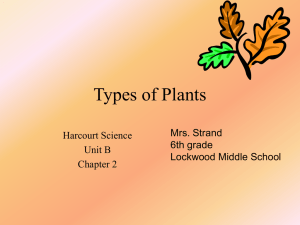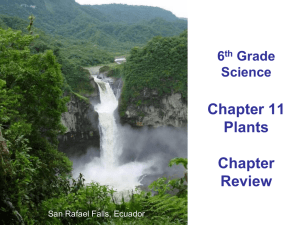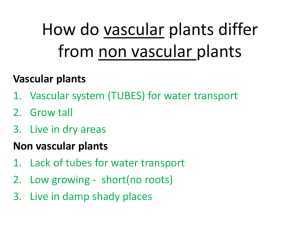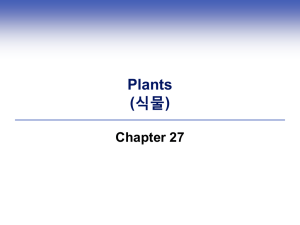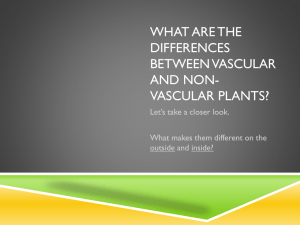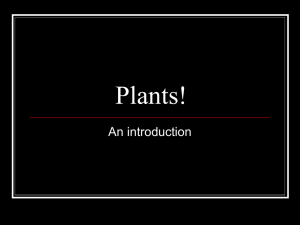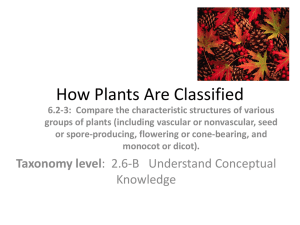Plant Kingdom Notes
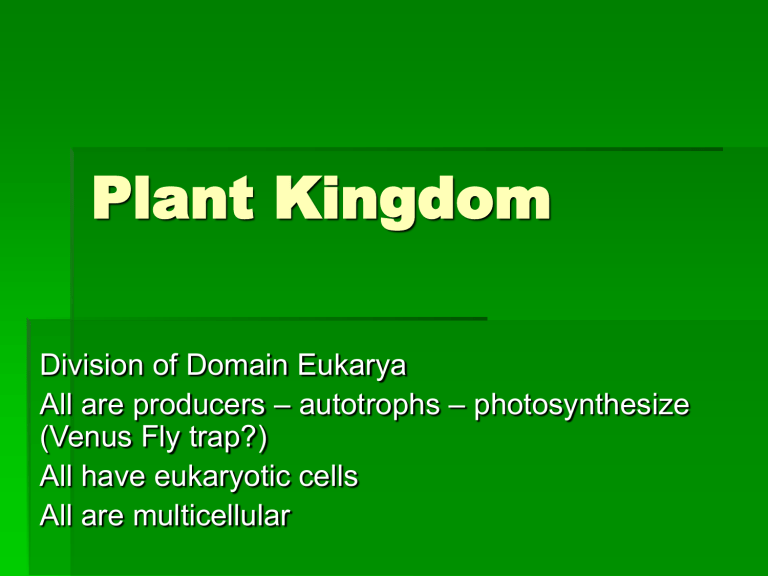
Plant Kingdom
Division of Domain Eukarya
All are producers – autotrophs – photosynthesize
(Venus Fly trap?)
All have eukaryotic cells
All are multicellular
Phylogenetic Tree
Family tree that shows the evolutionary relationships thought to exist among groups of organisms.
Angiosperms
Gymnosperms
Seedless
Non vascular
Plants
Algal Ancestors
Seedless vascular plants
Vascular tissue
Type of tissue that transports water and dissolved substances throughout the plant
Provides support for the plant
What advantage does a plant have when it has vascular tissue?
Angiosperms
Gymnosperms
Seedless
Non vascular
Plants
Algal Ancestors
Seedless vascular plants
Seedless Non – Vascular
Plants
No vascular tissue
No true roots or leaves
Attached to soil by rhizoids – which absorb water and minerals.
Produce spores to reproduce
Non – Vascular Plants
Pioneer plant – one of the 1 st to appear in an environment.
Phyla: Mosses, Liverwort and hornworts
These plants don’t have vascular tissue, so what type of habitat must they live in?
Angiosperms
Gymnosperms
Seedless
Non vascular
Plants
Algal Ancestors
Seedless vascular plants
Seedless Vascular Plants
Have vascular tissue
Reproduce with spores.
Phyla: Ferns, Club mosses, Horsetails
What type of habitat can these plants be found in?
Angiosperms
Gymnosperms
Seedless
Non vascular
Plants
Algal Ancestors
Seedless vascular plants
Vascular Seed Plants
Have vascular tissue and reproduce with a seed.
Can be herbaceous or woody.
Phyla
1.
Gymnosperms
• Evergreen
• Have cones
• Seeds are naked – not protected by a fruit.
• Example: Red Pine
Angiosperms
Gymnosperms
Seedless
Non vascular
Plants
Algal Ancestors
Seedless vascular plants
2.
Angiosperms
• Flowering Plants.
• Usually deciduous.
• Most have seeds protected in a fruit.
• Example: Apple tree

